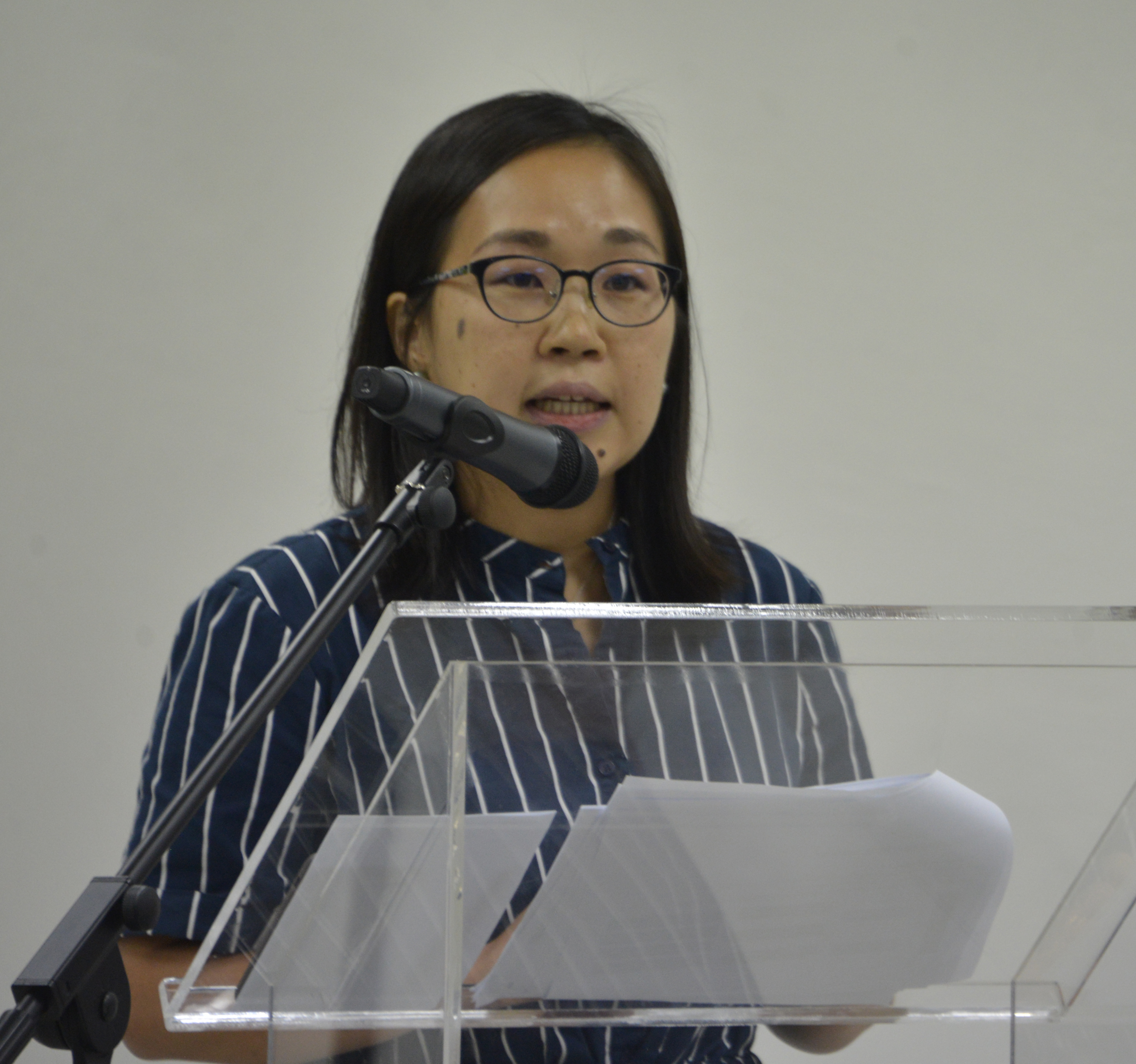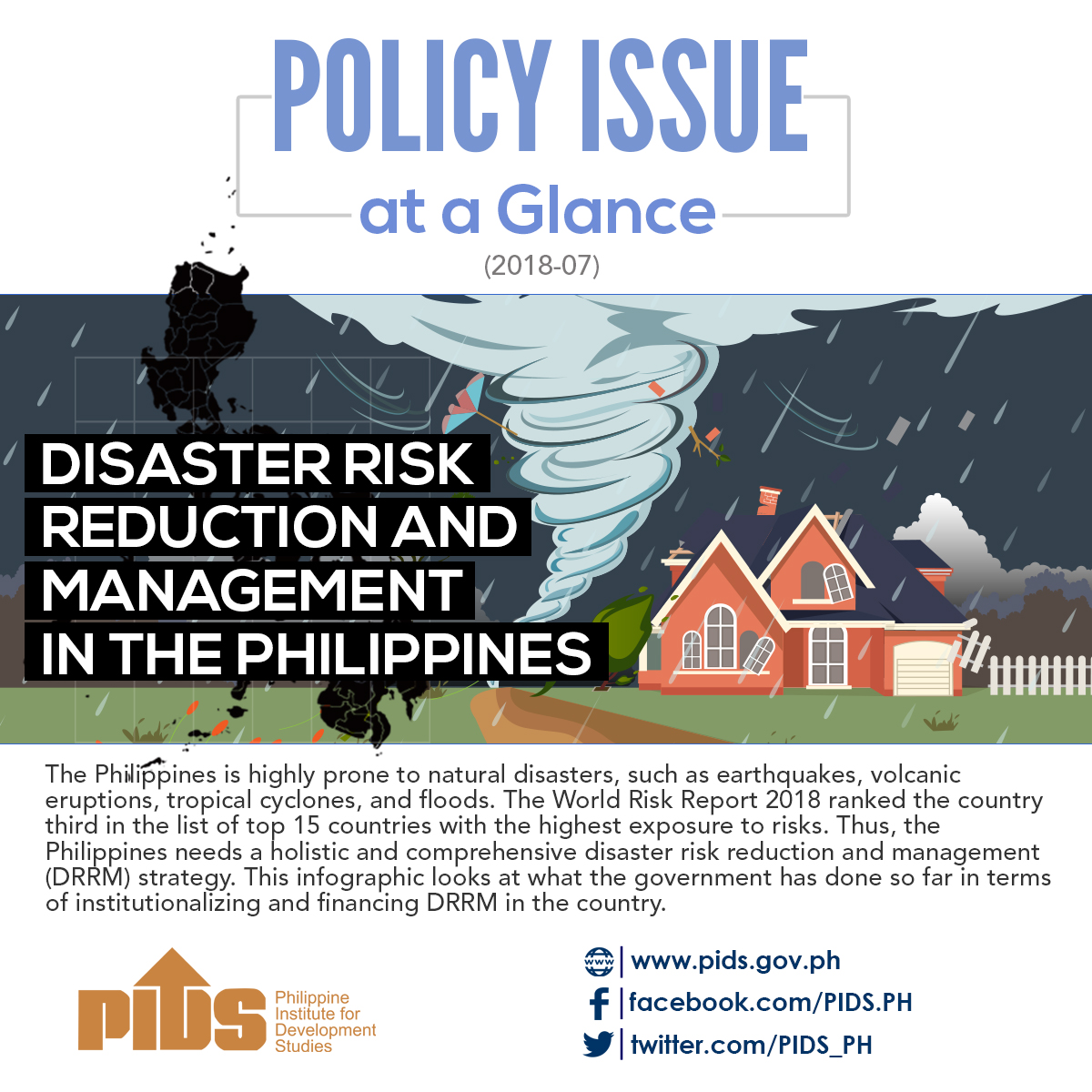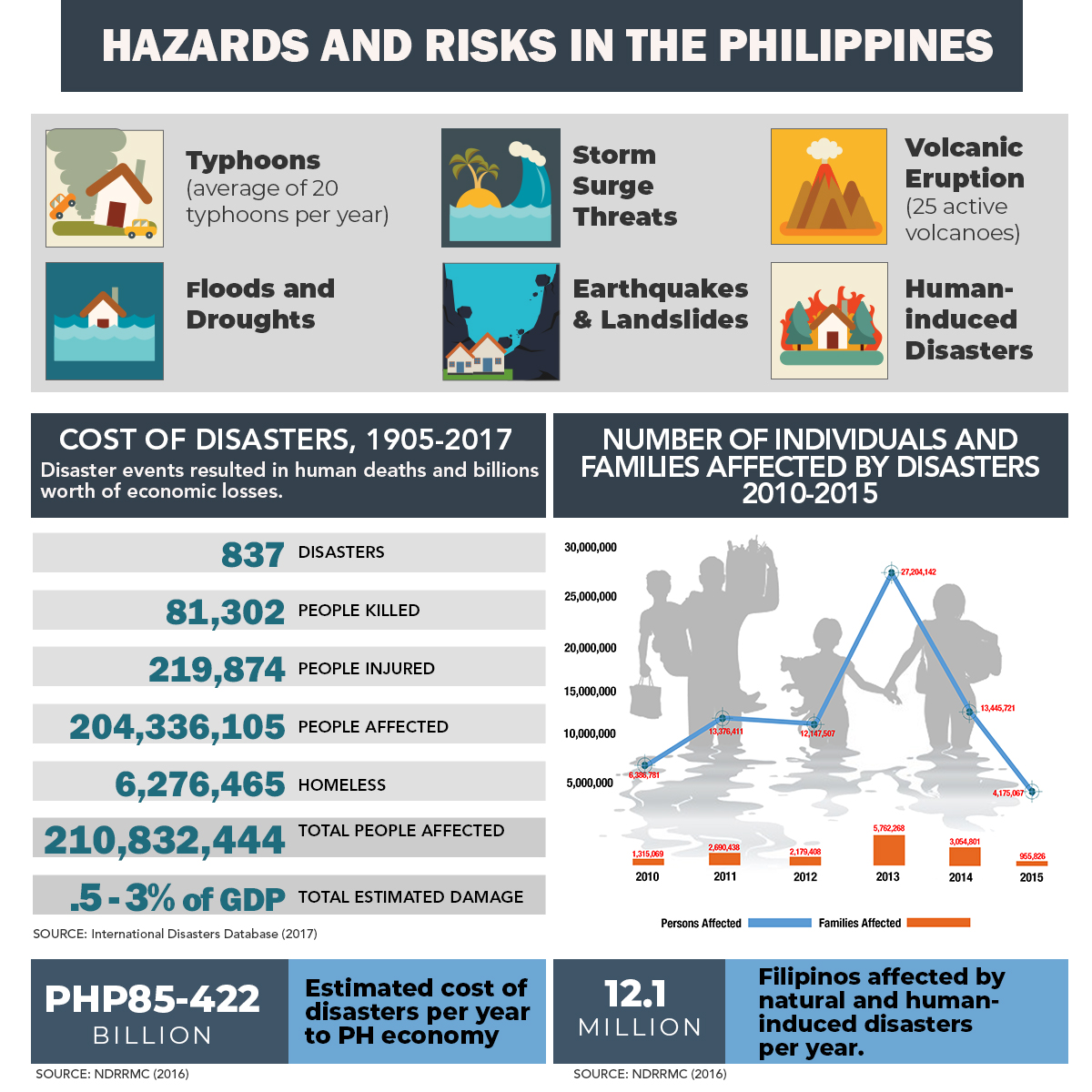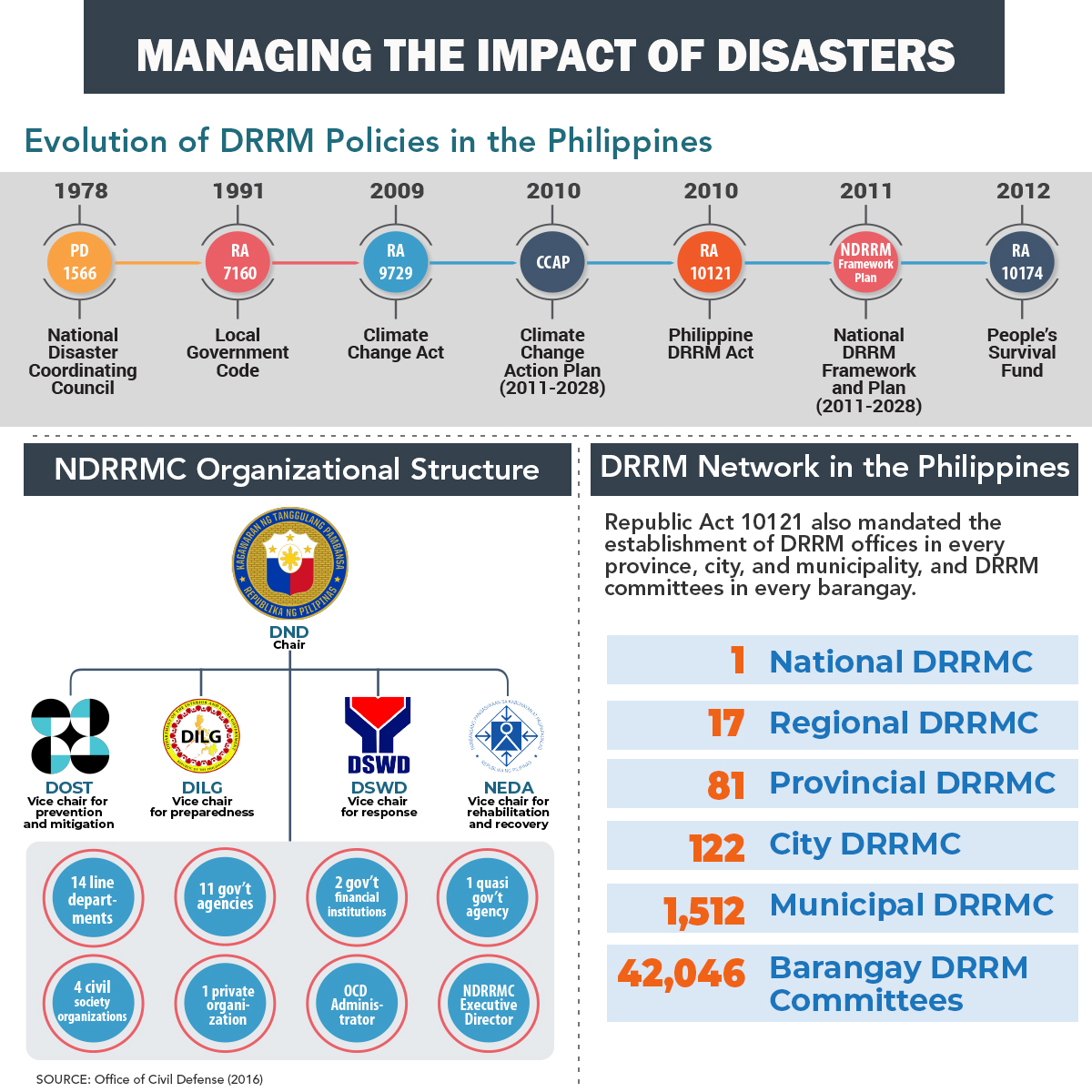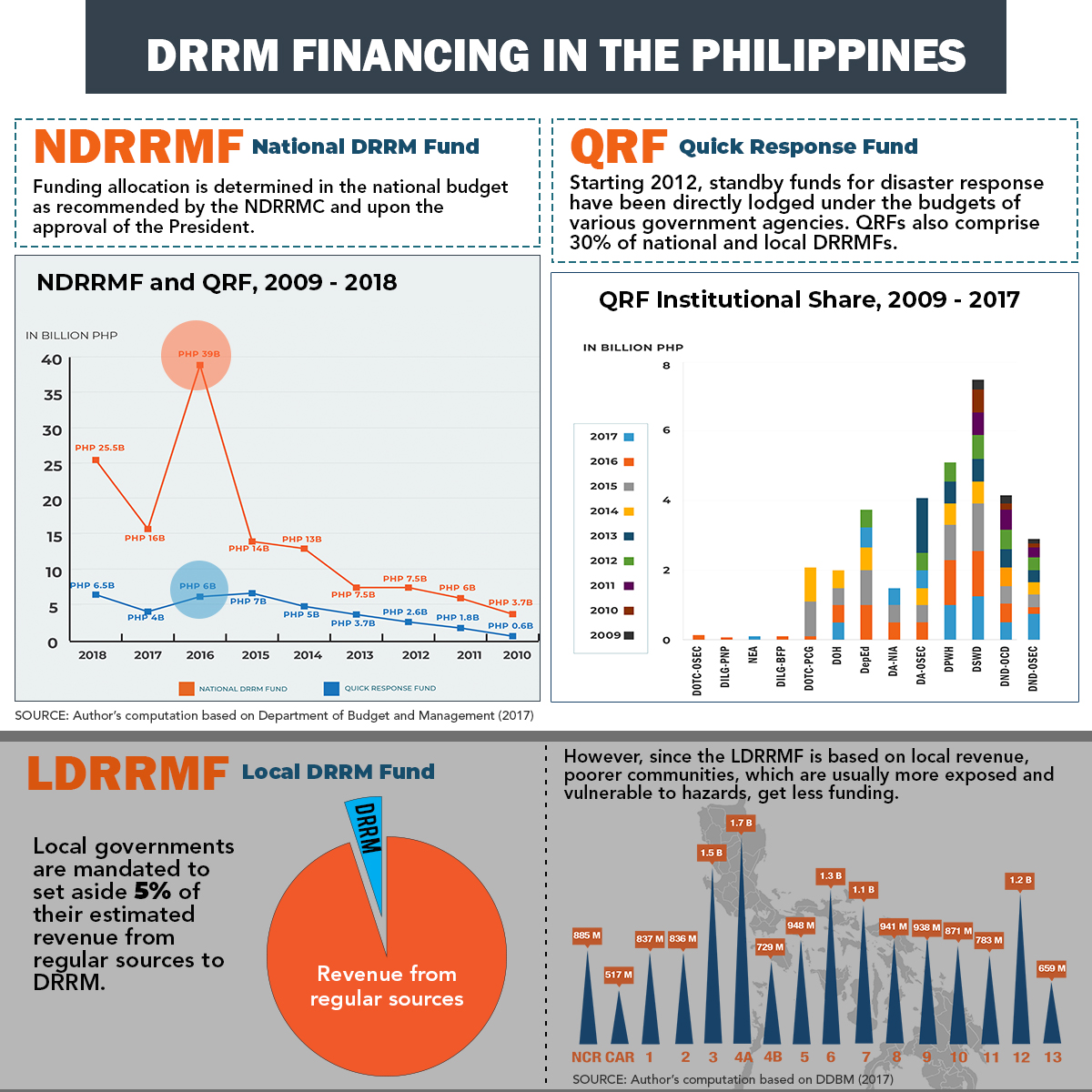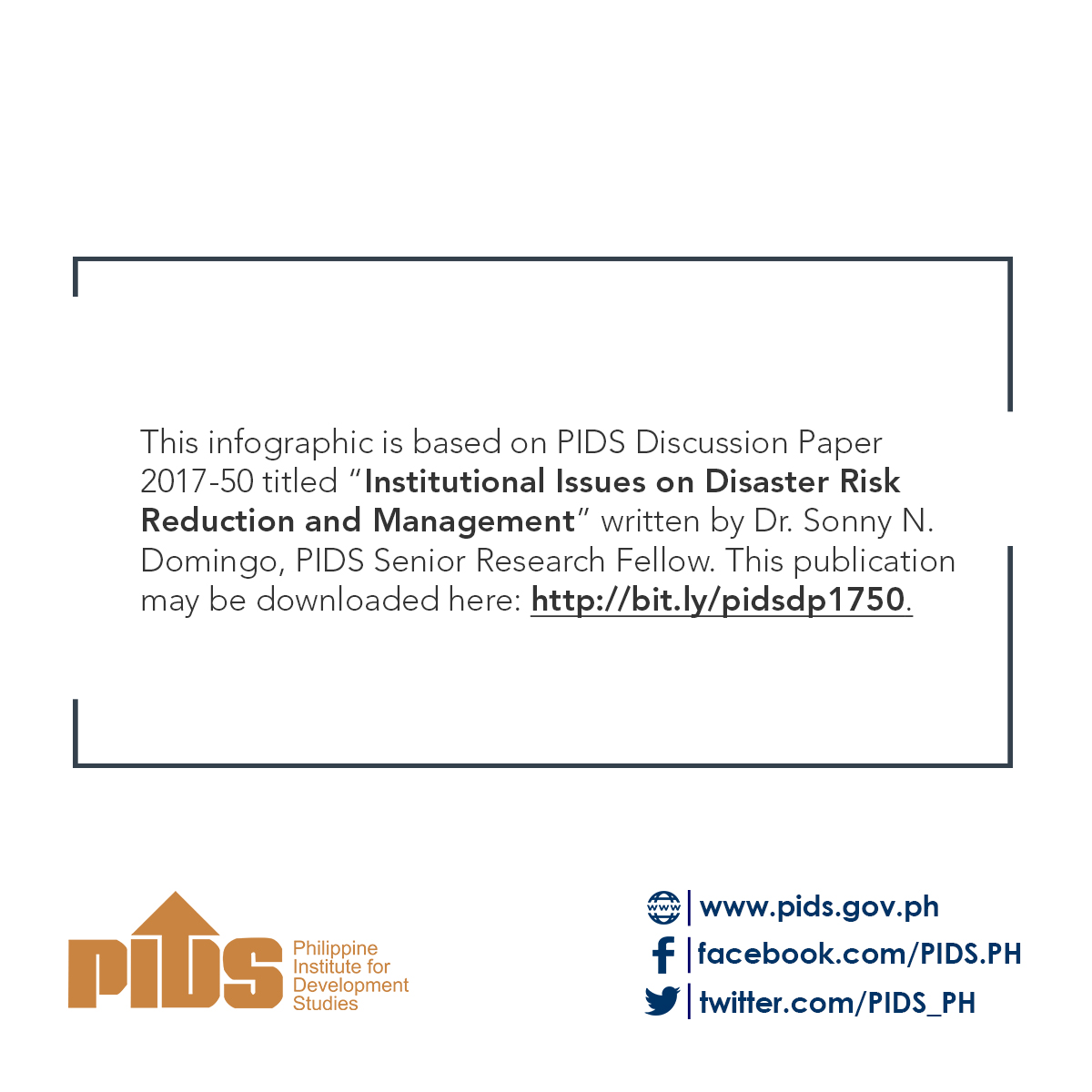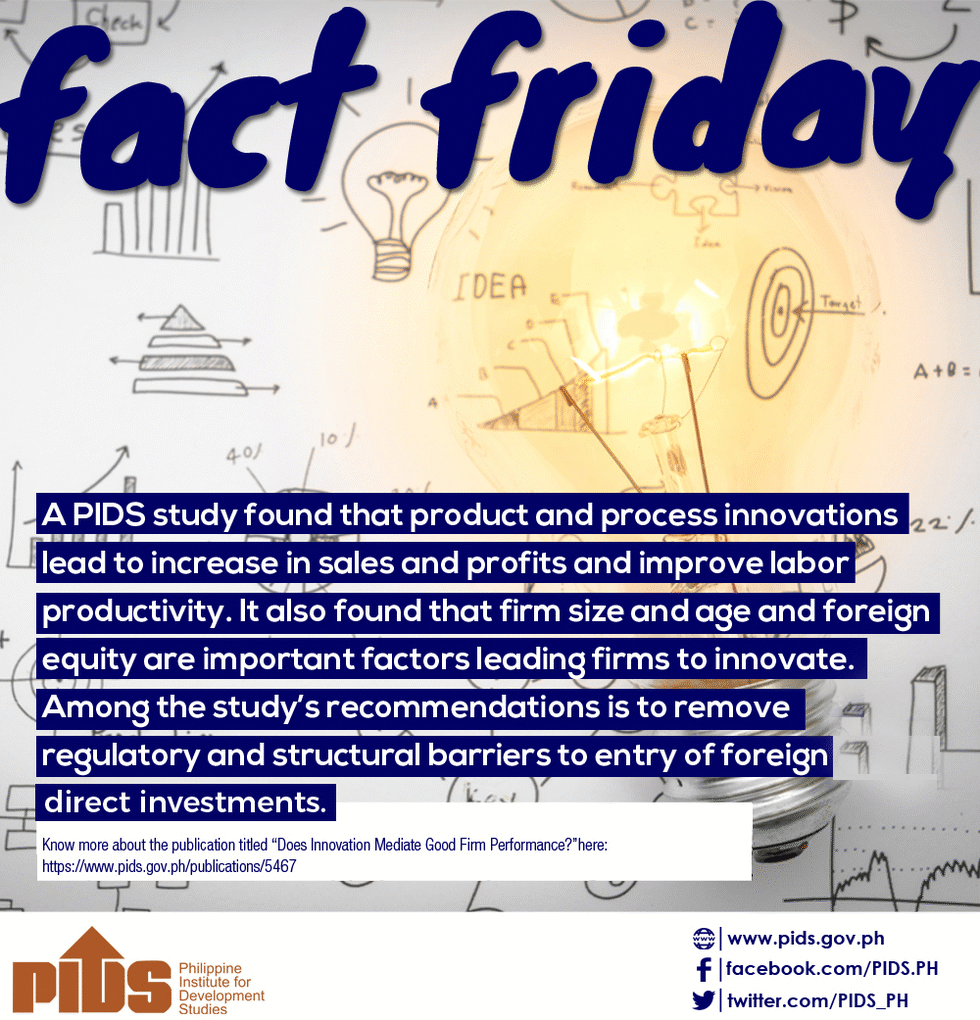Having trouble reading this email? View it in your browser. |
||||
 |
||||
|
||||
DEVELOPMENT RESEARCH NEWS
This issue of the Development Research News revisits the country's social protection programs and provides strategies to further improve their implementation. Its banner story specifically highlights the struggle of Filipino farmers, particularly those from the CALABARZON region, to afford agricultural insurance. Another article emphasizes the need for the government's social protection programs to be adaptive to climate change and disasters. Related stories on social protection programs also featured in this issue include the study on the benefits of emergency unconditional cash transfer program of the United Nations Children's Fund to Typhoon Yolanda survivors and the Pantawid Pamilyang Pilipino Program. Completing this issue are stories on extended subsidy for exporting micro, small, and medium enterprises; the role of higher education institutions in addressing poverty in the Philippines; and the slow disaster recovery in the country. Click here to download the publication.
POLICY NOTE PN 2018-08:
Crafting Policies and Programs for Women in the Agriculture Sector This Policy Note assesses the state of the innovation ecosystem in the Philippines. Among others, it notes that micro, small, and medium enterprises (MSMEs) do not innovate as much as large firms. It also finds that firms consider the government and public research institutes as the least important sources of information on innovation. To encourage MSMEs to take risks and innovate, the study urges the government to tailor its interventions to sector-specific needs of firms, especially in accessing finance, knowledge, and skills. While large firms already have financial and human resources, the study also reminds the government that large firms still need assistance in making a paradigm shift toward seeing the value of going beyond their knowledge and cooperation networks for innovation. The study also calls for an inventory and evaluation of existing mechanisms to strengthen the free flow of information within the innovation ecosystem. Click here to download the paper.
DISCUSSION PAPERS DP 2018-10: Vulnerability to Poverty in the Philippines: An Examination of Trends from 2003 to 2015 The reduction of poverty is at the heart of the development agenda both nationally and globally. This is reflected in the Philippine Development Plan, as well as in the worldwide commitment toward the Sustainable Development Goals. While the measurement of poverty is ex post and thus, public interventions are directed at helping those who have been identified as poor, the government must broaden the scope of assessments and take account of the dynamics in poverty in public policy. A critical dimension to poverty dynamics is vulnerability which conceptually pertains to the risk of future poverty. This study continued previous work that involves estimating the vulnerability level of households to income poverty using a modified probit model incorporating income and other poverty data sourced from the Family Income and Expenditure Survey, as well as the country's official poverty lines. The vulnerability assessment in this study provides inputs to forward-looking interventions that build the resilience of households to future poverty. The study makes a case for the need to make use of both poverty and vulnerability estimates in programs and come up with differentiated actions for those highly vulnerable and relatively vulnerable. Click here to download the paper. DP 2018-09: Assessing the Effects of Simple and Complex Innovation Strategies Innovation is the synergistic use of resources, technology, capital, and information to achieve growth at different levels of the economy. Many studies abroad have already supported the hypothesis that innovation leads to good firm performance and long-term economic growth. In the Philippines, some studies already analyzed the effects of simple innovations on firm performance. However, emerging literature shows that complex innovation strategies have bigger impacts than simple ones. This paper analyzes the effects of simple and complex innovations on labor productivity and employment growth. Results show that there is no single best innovation strategy that a firm must undertake. However, if firms are constrained by their budget, a simple innovation will help in improving labor productivity and, to some extent, employment growth. Firms that do not face cost issues can benefit more from adopting a complex innovation strategy. In addition, several specific types of complex innovation strategies can be adapted depending on whether the firm aims to increase its employment or to boost its labor productivity. Click here to download the paper. DP 2018-08:
E-Education in the Philippines: The Case of Technical Education
and Skills Development Authority Online Program Education and training for productive employment play a crucial role in the social and economic plans of a developing country like the Philippines. Technical and vocational education and training (TVET) in the country has been viewed as a tool to help equip the people with the necessary skills for employment. In effect, this increases their income potential, and eventually, remove them from poverty. To reach more people, more so, those in the remotest places, Technical Education and Skills Development Authority (TESDA) introduced information and communications technology (ICT) into TVET and launched the TESDA Online Program (TOP) in 2012. TOP is the first Philippine institution to offer massive open online courses. Current TESDA statistics estimate that more than a million Filipinos were able to access and utilize the TOP. This study assesses how ICT has enabled Filipinos to have access and use online technical education offered free by the e-TESDA program. It also acknowledges the unlimited opportunities offered by TOP through its courses and the potential number of users/beneficiaries. The vision of a globally competitive Filipino workforce with advanced skills can be realized with the encouraging results of the TOP accreditation and certification. Read more about the recommendations on how to improve the current TOP in this study. Click here to download the paper. |
September 4, 2018, 10AM–1PM September 11, 2018, 8:30AM–5PM September 19, 2018, 9AM–5PM
-------------------------------------------------
The Philippine Journal of Development is a professional journal published by the Philippine Institute for Development Studies. It accepts papers that examine key issues in development and have strong relevance to policy development. As a multidisciplinary social science journal, it accepts papers in the fields of economics, political science, public administration, sociology, and other related disciplines. It considers papers that have strong policy implications on national or international concerns, particularly development issues in the Asia-Pacific region. CLICK HERE for the guidelines in the preparation of articles. Submissions and inquiries may be sent to PJD@mail.pids.gov.ph.
|
|||
The Department of Education (DepEd) needs a lot of catching up in terms of improving the design of the Alternative Learning System (ALS) and encouraging out-of-school adults to participate in the program.
|
||||
POLICY ISSUE AT A GLANCE Disaster Risk Reduction and Management in the Philippines The Philippines is highly prone to natural disasters, such as earthquakes, volcanic eruptions, tropical cyclones, and floods. The World Risk Report 2018 ranked the country third in the list of top 15 countries with the highest exposure to risks. Thus, the Philippines needs a holistic and comprehensive disaster risk reduction and management (DRRM) strategy. This infographic looks at what the government has done so far in terms of institutionalizing and financing DRRM in the country. This infographic is based on PIDS Discussion Paper 2017-50 titled Institutional Issues on Disaster Risk Reduction and Management written by Dr. Sonny N. Domingo, PIDS senior research fellow. To view in actual size, visit the PIDS website or the PIDS Facebook page.
FACT FRIDAY Every Friday, PIDS releases nuggets of research results culled from different PIDS studies. Here are the latest #PIDSFactFriday issues. Like us on Facebook for more #PIDSFactFriday issues. |
||||
Need help? Have feedback? Feel free to contact us. © 2018 Philippine Institute for Development Studies.
|
||||

.jpg)
